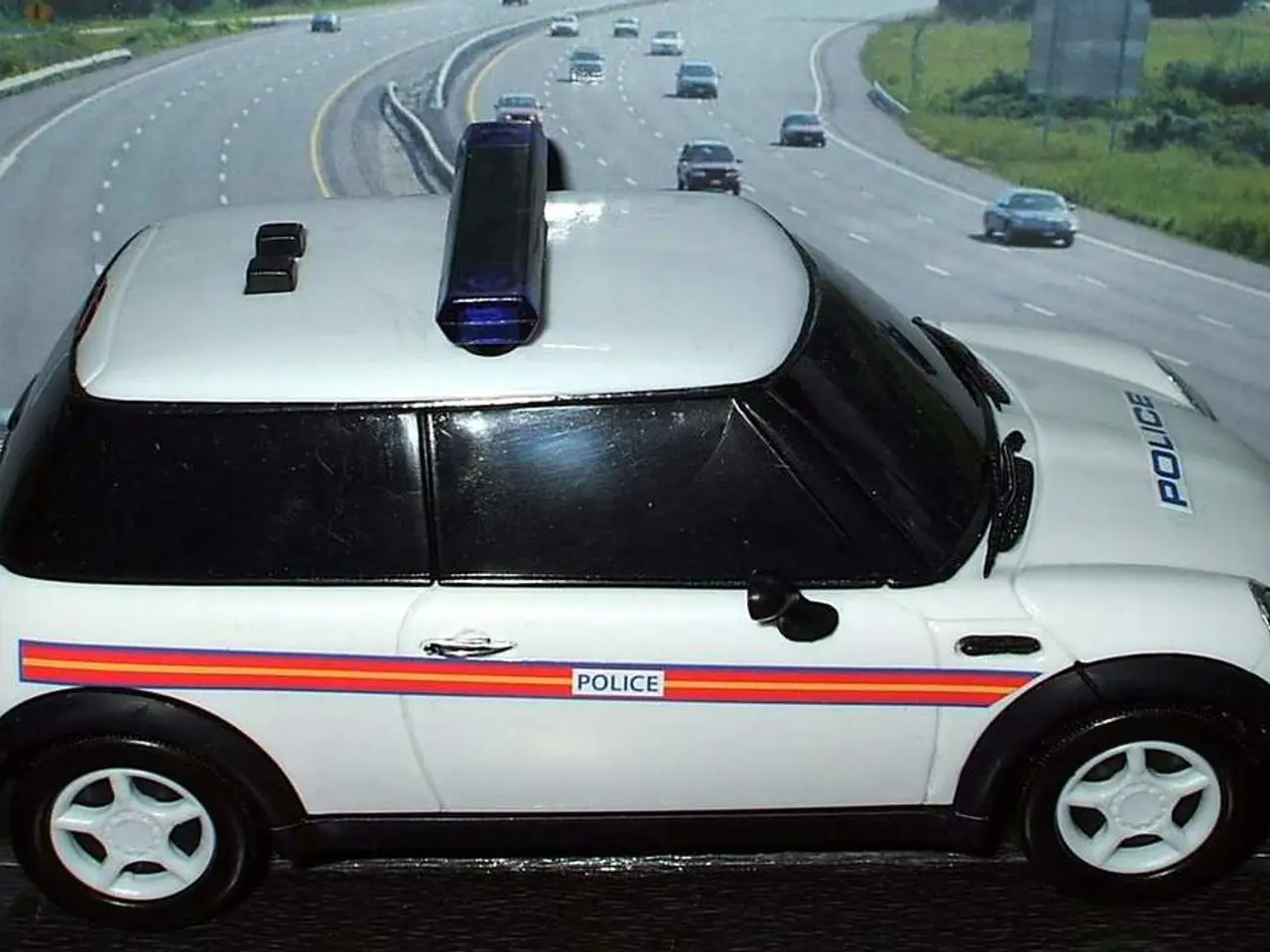Individual under the influence of drugs inadvertently triggers crash, resulting in self-inflicted injuries
In Dortmund, Germany, a chaotic scene unfolded on a busy street when a 34-year-old driver, under the influence of either alcohol or drugs, rear-ended a parked car, causing a chain reaction that involved three more vehicles.
The incident, which took place on Borsigstraße, left four vehicles damaged and sent shockwaves through the onlookers who watched the scene unfold. The 34-year-old driver, upon arrival of the police, became enraged and attempted to harm himself. He had to be restrained by officers due to his erratic behavior.
Bystanders, concerned for the safety of all involved, attempted to assist the police in controlling the situation. The driver from Dortmund, 31 years old, was in the third car and also sustained minor injuries. Another driver, a 39-year-old from Frondenberg, was involved in the second car and also suffered minor injuries.
The driver's license of the 34-year-old driver was confiscated, and a blood sample was taken for suspicion of drug use. The Borsigstraße was closed in both directions until 16:44 for investigation. It took the arrival of additional officers to fully control the situation.
Driving under the influence (DUI) of alcohol or drugs is strictly prohibited in Germany, with clear legal blood alcohol limits and severe consequences that apply nationwide, including Dortmund. The legal blood alcohol limit for regular drivers is 0.05%, with zero tolerance for young or probationary drivers, where any alcohol detected in the blood is illegal.
The consequences of a DUI offense in Dortmund include fines, points added to the driving penalty register, driving bans, license revocation, criminal charges, and imprisonment. For a first offense with a blood alcohol level above 0.05%, the fine is approximately €500; subsequent offenses result in higher fines. Drivers receive 2 points in the driving penalty register for each offense, and a driving ban is imposed, for example, 1-month for the first offense and up to 3 months for repeat offenses.
For high blood alcohol levels (e.g., 0.3% and above), the driver's license can be revoked, with a possible permanent ban. If the blood alcohol level is very high (over 1.1%) or if the DUI incident endangers others (e.g., causes an accident), criminal charges and possible jail time may apply.
DUI with drugs is also subject to similar penalties under the German Narcotic Drugs Act. These laws are strictly enforced in Dortmund, as in the rest of Germany, with zero tolerance especially during the probationary period for new drivers. Even small amounts of alcohol or drugs can lead to legal consequences. Safe alternatives to driving are highly advised if drinking or using drugs is planned.
References:
- How-to-Germany.com, Traffic Fines Calculator (2025): https://www.how-to-germany.com/traffic-fines-calculator/
- Lingoda Blog, Weird Laws in Germany (2025): https://www.lingoda.com/blog/en/weird-laws-germany/
- The chaotic scene on Borsigstraße in Dortmund, Germany, highlighted the potential dangers of health-and-wellness issues such as driving under the influence of drugs or alcohol, which led to subsequent mental-health concerns when the 34-year-old driver became enraged.
- As the incident demonstrated, the general-news narrative of motor vehicle accidents involving DUI can have profound effects on health-and-wellness, both for the individuals involved, such as the 34-year-old driver and the other drivers from Dortmund and Frondenberg, as well as the community witnessing the event.
- It is essential for every driver to be aware of the strict laws concerning crime-and-justice issues like DUI in cities like Dortmund, considering the severe penalties for violating regulations, which emphasize the importance of prioritizing health-and-wellness and staying within the legal limits regarding alcohol and drug use.




